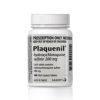No products in the cart.
Return To ShopNo products in the cart.
Return To Shop$465.00 – $1,798.00Price range: $465.00 through $1,798.00
Xeljanz (tofacitinib) is a prescription JAK inhibitor used to treat moderate to severe rheumatoid arthritis, active psoriatic arthritis, and ulcerative colitis in adults who have not responded adequately to previous treatments. This oral medication works by blocking specific enzymes that contribute to inflammation and immune system overactivity. For patients seeking affordable inflammatory disease medications, working with licensed pharmacies ensures safe access to authentic treatments while maintaining proper monitoring protocols.
Xeljanz, containing the active ingredient tofacitinib, represents a major advancement in treating autoimmune inflammatory conditions. As a first-in-class Janus kinase (JAK) inhibitor, this medication blocks the JAK enzymes that transmit inflammatory signals within immune cells, providing targeted therapy for conditions where the immune system attacks healthy tissues.
The medication works by interrupting the JAK-STAT signaling pathway, which plays a crucial role in immune cell communication and inflammatory responses. Xeljanz specifically inhibits JAK1/JAK2, JAK1/JAK3, and JAK2/JAK2 enzyme combinations, effectively reducing inflammation at the cellular level. This targeted approach differs from broader immunosuppressive medications by specifically blocking pathways involved in autoimmune diseases.
Xeljanz is available in multiple formulations including immediate-release tablets (5mg and 10mg) and extended-release tablets (11mg). The immediate-release formulation is typically taken twice daily, while the extended-release version provides once-daily convenience. Both formulations can be taken with or without food, though consistent timing helps maintain steady blood levels.
Clinical studies demonstrate significant improvements in disease activity across multiple conditions. In rheumatoid arthritis patients, 59-69% achieved ACR20 responses (20% improvement in symptoms) with Xeljanz monotherapy, compared to 26% with placebo. For ulcerative colitis, the medication shows effectiveness in both inducing and maintaining remission, with 10mg twice daily used for initial treatment followed by maintenance dosing.
The medication carries FDA Black Box Warnings for serious infections and malignancy risks due to its immunosuppressive effects. Patients require careful screening for tuberculosis and other infections before starting treatment, plus ongoing monitoring throughout therapy. Regular laboratory monitoring includes blood counts, liver function tests, and cholesterol levels.
For patients managing multiple health conditions, coordination with other treatments is essential. Those using diabetes medications may need careful monitoring as Xeljanz patients with diabetes face higher infection risks. Similarly, patients taking blood pressure medications require monitoring as Xeljanz can affect cardiovascular parameters. Those exploring cost-effective specialty medication options should work with healthcare providers to access patient assistance programs and ensure proper safety monitoring.
| Brand | Xeljanz 5 mg Brand, Xeljanz XR Brand |
|---|---|
| Form | 11mg 28 Tablets, 56 Tablets |
Emergency Warning Signs: Contact healthcare provider immediately for fever above 101°F, persistent cough, unusual fatigue, painful skin lesions, severe abdominal pain, signs of infection, or any new growths on the skin.
Xeljanz has specific FDA-approved indications with clear patient population criteria and limitations:
For patients requiring comprehensive autoimmune disease management, coordination with other treatments is essential. Those needing additional pain management may consider safe pain relief options, while patients with concurrent conditions might need cardiovascular medications with careful monitoring for drug interactions. The complexity of JAK inhibitor therapy underscores the importance of working with experienced healthcare providers and accessing medications through verified pharmacy sources that maintain proper storage and handling protocols.
Xeljanz belongs to a class called Janus kinase (JAK) inhibitors, which block specific enzymes inside immune cells that transmit inflammatory signals. By inhibiting JAK1, JAK2, and JAK3 enzymes, Xeljanz prevents the activation of immune pathways that cause inflammation in conditions like rheumatoid arthritis and ulcerative colitis. This targeted approach provides anti-inflammatory effects while allowing some immune function to remain intact.
The FDA requires a Black Box Warning because clinical studies showed increased risks of serious infections and certain cancers with Xeljanz use. This means patients need thorough screening before starting treatment, including tests for tuberculosis, hepatitis, and complete blood work. While the risks are real, many patients benefit significantly from Xeljanz when properly monitored by experienced healthcare providers.
Pre-treatment screening includes tuberculosis testing (chest X-ray, TB skin test or interferon-gamma release assay), hepatitis B and C testing, complete blood count with differential, comprehensive metabolic panel, liver function tests, and lipid panel. Patients also need evaluation for any active infections, history of recurrent infections, and assessment of vaccination status.
Initial monitoring includes blood work at 4-8 weeks after starting treatment, then every 3 months thereafter. This includes complete blood counts to check for low white blood cell counts, liver function tests, kidney function assessment, and lipid monitoring. Patients should also have regular skin examinations and prompt evaluation of any signs of infection.
Live vaccines (like MMR, varicella, yellow fever) are contraindicated while taking Xeljanz due to infection risk. Killed or inactivated vaccines (flu shot, pneumonia vaccine, hepatitis vaccines) are generally safe and recommended. Update all vaccinations before starting Xeljanz when possible, and consult your doctor about timing for any needed vaccines during treatment.
Contact your healthcare provider immediately for any fever, flu-like symptoms, unusual fatigue, persistent cough, or other signs of infection. Xeljanz may need to be temporarily discontinued until the infection is treated and resolved. Don't wait to see if symptoms improve on their own, as infections can progress rapidly in immunosuppressed patients.
While there's no specific contraindication for moderate alcohol use with Xeljanz, both alcohol and the medication are processed by the liver. Given that Xeljanz can affect liver enzymes and alcohol may increase this risk, discuss your alcohol consumption with your healthcare provider. They may recommend limiting intake or more frequent liver monitoring.
Xeljanz is not recommended during pregnancy due to potential fetal harm demonstrated in animal studies. Women of childbearing potential should use effective contraception during treatment and for at least 4 weeks after stopping. Breastfeeding is not recommended during Xeljanz treatment and for at least 18 hours after the last immediate-release dose or 36 hours after extended-release.
Xeljanz offers the convenience of oral administration compared to injectable biologics, and it works through a different mechanism by blocking JAK enzymes rather than neutralizing specific inflammatory proteins. Some patients who don't respond to TNF blockers may respond to Xeljanz. However, both medication classes carry serious infection and malignancy risks requiring careful monitoring.
Loss of response can occur with any immunosuppressive medication. Your doctor may adjust the dose (within approved limits), check for infections or other factors affecting response, or consider switching to a different medication. For rheumatoid arthritis and psoriatic arthritis, other JAK inhibitors or biological medications might be options. Never adjust doses independently without medical supervision.
The content on this page has been supplied to onlinepharmacynow.com by an independent third party contracted to provide information for our website. onlinepharmacynow.com relies on these third parties to create and maintain this information and cannot guarantee the accuracy or reliability of the information that has been provided to us.
The drug information provided here is only a summary and does not contain all the list of possible side effects and drug interactions regarding this medication. Be sure to contact your doctor or pharmacist if you have any specific question or concern. If you require any advice or information about the drugs on this page, a medical condition or treatment advice, you should always speak to a healthcare professional.
Please note that not all products, including any referenced in this page, are shipped by our affiliated Europe Pharmacy. We are affiliated with other dispensaries that ship product to our customers from the following jurisdictions: Canada, New Zealand, Turkey and United Kingdom. The items in your order maybe shipped from any of the above jurisdictions. The products are sourced from various countries as well as those listed above. Rest assured, we only affiliate with our authorized dispensaries that procure product through reliable sources.
Required
Send Your Prescription
Secure Payment
No Hidden Fees
Fast Shipping
Typically Under 7 days

$49.00

 Ask an expert
Ask an expert
